DIY Drain Cleaning Isn’t Always the Best Solution
You’ve probably been there before: you’re washing dishes or taking a shower when suddenly, the water starts to drain slowly or not at all. It’s a common issue that many people face at some point in their lives. And when it comes to dealing with a clogged drain, the first instinct for many is to try and fix it themselves.
DIY drain cleaning can seem like a cost-effective and convenient solution. After all, buying a bottle of drain cleaner or using a plunger is a lot cheaper than calling a professional plumber. But while DIY methods may work in some cases, they aren’t always the best solution. In fact, they can sometimes do more harm than good.
One of the biggest issues with DIY drain cleaning is that it often only addresses the symptoms of the clog, rather than the root cause. When you pour chemicals down the drain or use a plunger to force the clog through, you may temporarily clear the blockage. However, if there is a larger issue at play, such as a tree root intrusion or a collapsed pipe, the clog is likely to return.
Additionally, some DIY drain cleaning methods can actually damage your pipes. Harsh chemicals found in many commercial drain cleaners can erode the pipes over time, leading to leaks and more costly repairs down the line. Using a plunger too aggressively can also cause damage, especially if you have older or fragile pipes.
Another downside of DIY drain cleaning is that it often fails to fully remove the clog. If you only partially clear the blockage, it can continue to build up over time, leading to more frequent backups and potentially even a complete blockage. In the worst-case scenario, you may end up with a sewage backup in your home, which can be messy, unsanitary, and expensive to clean up.
In some cases, attempting to unclog a drain yourself can also put your health at risk. Many commercial drain cleaners contain toxic chemicals that can be harmful if ingested or inhaled. Using these products in a poorly ventilated area or failing to follow the instructions carefully can result in accidental poisoning or other health problems.
So, what’s the alternative to DIY drain cleaning? In many cases, it’s best to leave the job to the professionals. A licensed plumber has the skills, tools, and experience necessary to accurately diagnose and fix the underlying cause of the clog. They can use advanced techniques such as hydro-jetting to completely remove the blockage without causing damage to your pipes.
While professional drain cleaning may cost more upfront than attempting to fix the problem yourself, it can actually save you money in the long run. By addressing the root cause of the clog, a plumber can prevent future backups and costly repairs. They can also provide maintenance tips to help you keep your drains clear and prevent clogs from forming in the first place.
In conclusion, DIY drain cleaning isn’t always the best solution when it comes to dealing with clogged drains. While it may seem like a quick and easy fix, it can often do more harm than good. From damaging your pipes to putting your health at risk, there are several potential pitfalls to attempting to unclog a drain yourself.
Instead of reaching for a bottle of drain cleaner or a plunger the next time you have a clog, consider calling a professional plumber. They have the expertise and tools necessary to effectively and safely clear the blockage, ensuring that your drains flow smoothly and your pipes remain in good condition. Trusting the professionals may cost more upfront, but it can ultimately save you time, money, and headaches in the long run.



